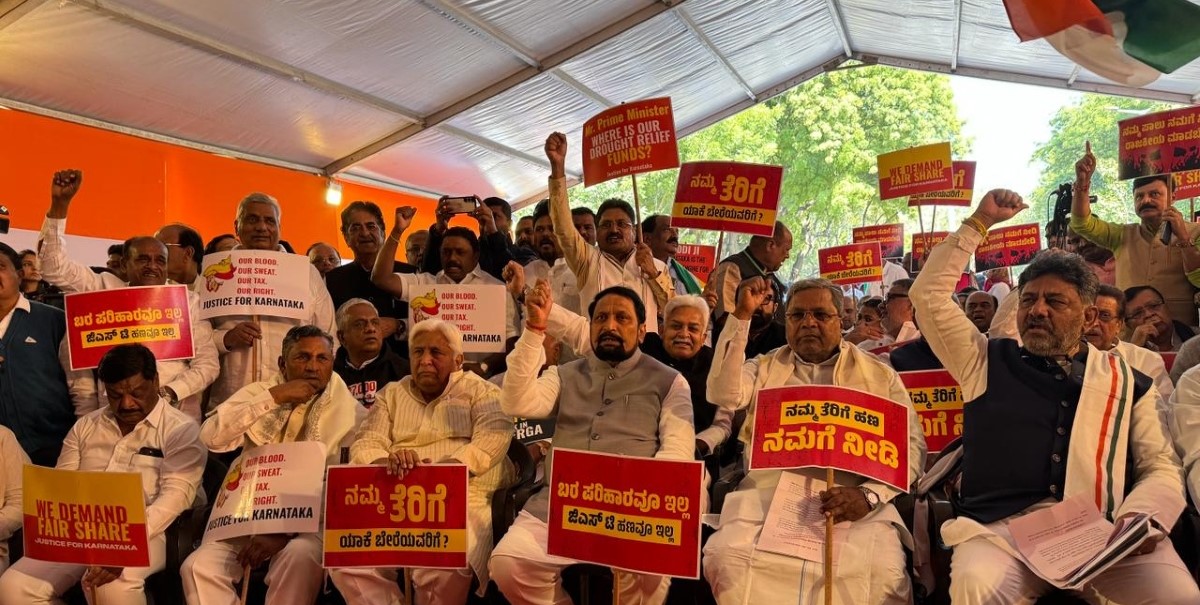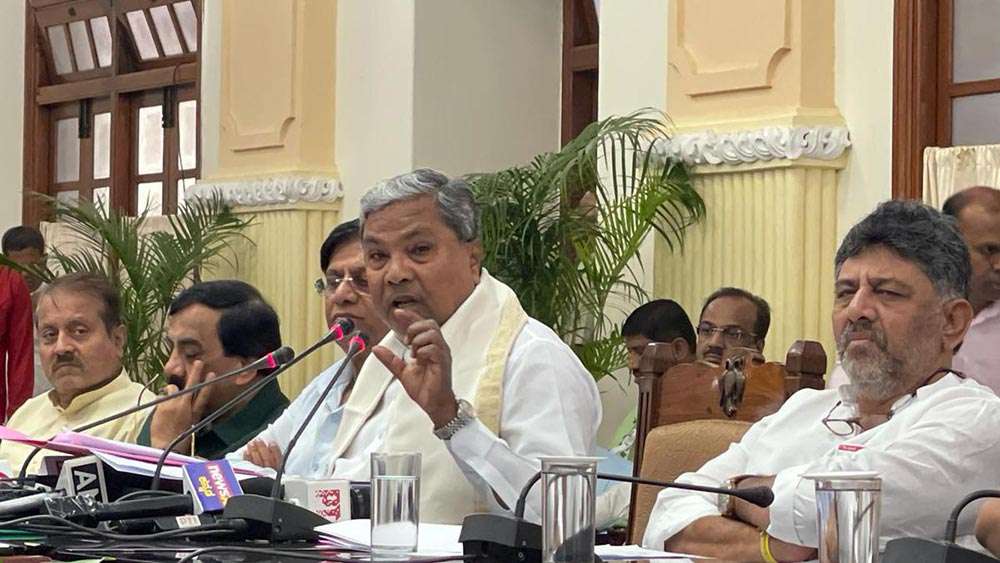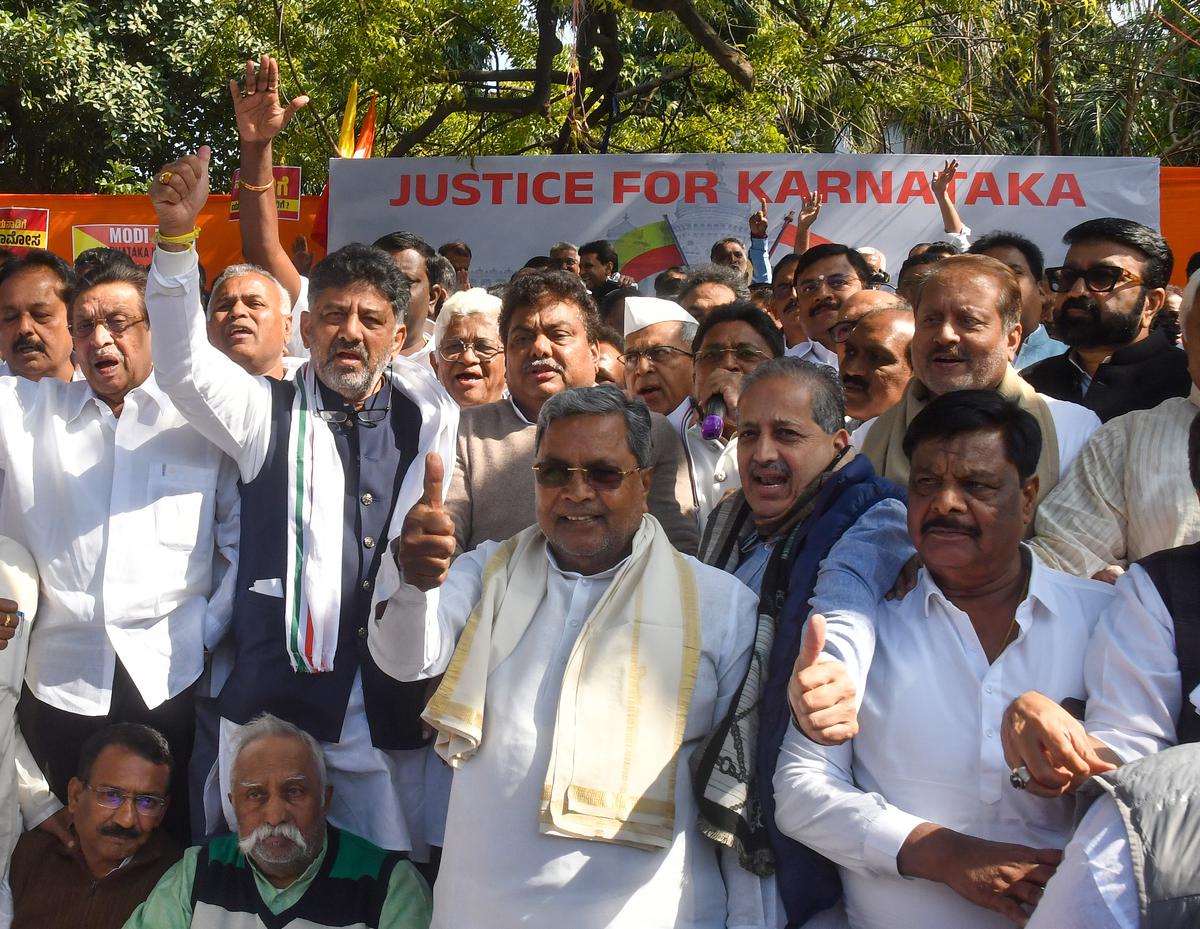Table of Contents

Introduction :
In a bold move highlighting the grievances of Karnataka and other states, former Chief Minister Siddaramaiah led a delegation of ministers in a protest in Delhi against what they perceive as injustice in tax devolution by the central government. The protest comes amidst growing concerns over the fair distribution of funds and resources among states, reflecting a broader national debate on fiscal federalism and state autonomy.
Background :
The issue of tax devolution has long been contentious in India’s federal structure. Under the current system, the central government collects taxes and then redistributes a portion of these funds to the states through various mechanisms, including the Finance Commission. However, concerns have been raised regarding the fairness and adequacy of this distribution, with many states feeling shortchanged in the process.
Siddaramaiah’s Leadership :
Siddaramaiah, a seasoned politician and former Chief Minister of Karnataka, has emerged as a vocal advocate for the rights of states in matters of fiscal federalism. His leadership in organizing the protest in Delhi underscores the seriousness of the issue and the determination of Karnataka’s government to fight for what it sees as its rightful share of resources.

Key Grievances :
The protest aimed to highlight several key grievances regarding tax devolution. One of the primary concerns is the formula used by the Finance Commission to determine states’ share in central taxes. Many states, including Karnataka, argue that the current formula does not accurately reflect their contributions to the national economy and population size, leading to inequitable distribution.
Impact on States :
The perceived injustice in tax devolution has significant implications for states’ ability to finance essential services and development projects. Karnataka, as one of India’s most economically vibrant states, feels particularly aggrieved by what it sees as a disproportionate share of funds allocated to less prosperous states. This imbalance hampers Karnataka’s efforts to address critical issues such as infrastructure development, education, and healthcare.
National Dialogue on Fiscal Federalism :
The protest led by Siddaramaiah is part of a broader national dialogue on fiscal federalism and state autonomy. States across India are increasingly asserting their rights in financial matters, challenging the centralized control exercised by the central government. This trend reflects the evolving nature of Indian democracy and the growing demands for greater decentralization and empowerment of states.
Demand for Reform :
Central to the protest is the demand for reform in the system of tax devolution. States like Karnataka are calling for a more transparent and equitable mechanism that takes into account factors such as economic performance, population density, and resource distribution. They argue that a fairer system would promote greater fiscal autonomy for states and foster balanced regional development across the country.
Government Response on Tax devolution :
The central government’s response to the protest remains to be seen. While some officials have acknowledged the validity of states’ concerns, others have defended the current system, citing the need for stability and predictability in fiscal arrangements. Nevertheless, the growing chorus of voices from states demanding reform is likely to exert pressure on the government to address the issue more seriously.

The Way Forward :
As the protest in Delhi draws attention to the issue of tax devolution, it is clear that a comprehensive solution is needed to address the grievances of states effectively. This may require not only revisiting the formula for tax distribution but also exploring alternative mechanisms that better reflect the diverse needs and capacities of different states. Ultimately, a fair and transparent system of tax devolution is essential for promoting inclusive growth and strengthening India’s federal structure.
Conclusion :
The protest led by Siddaramaiah and ministers from Karnataka shines a spotlight on the longstanding issue of tax devolution and its impact on the state’s finances. By raising their voices against what they perceive as injustice, Karnataka and other states are contributing to a vital national conversation on fiscal federalism and the distribution of resources. As the debate continues, all stakeholders must work towards a solution that ensures fairness, equity, and empowerment for all states in India’s federal system.


